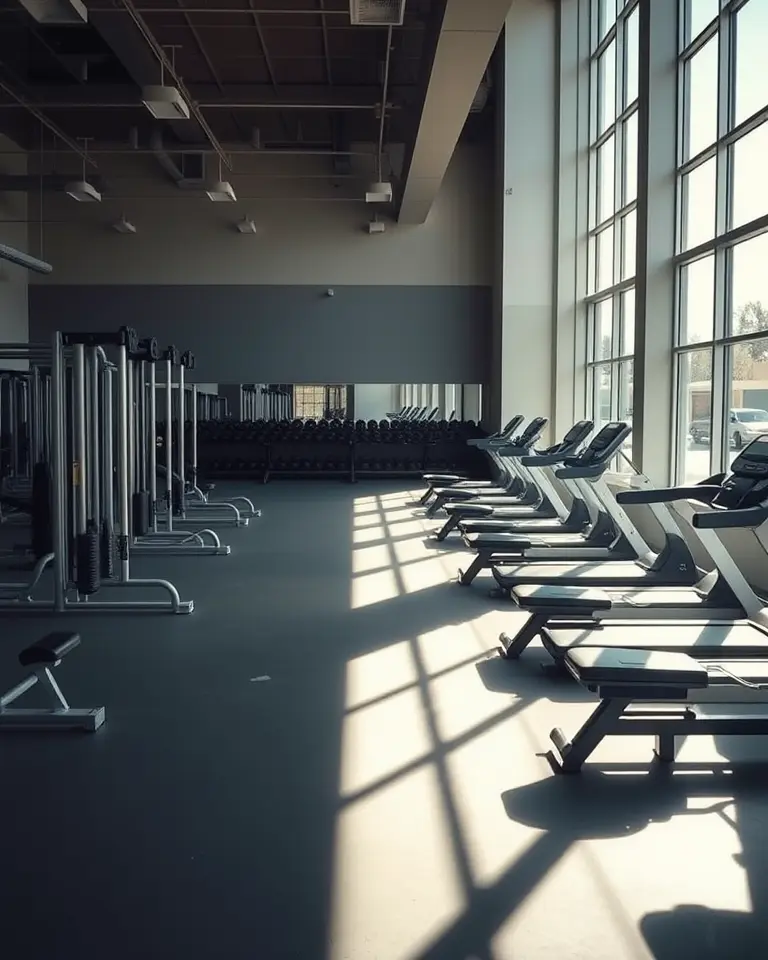Hong Kong, China – The long-standing Hong Kong gym chain, Physical, has been ordered into liquidation by the High Court, marking a significant downfall for a business that operated for nearly four decades. The decision comes after months of financial turmoil, unpaid debts, and legal battles, leaving its customers and employees in a state of uncertainty.
The Fall of a Fitness Giant
Physical Fitness, a name that was once synonymous with fitness in Hong Kong, had its roots going back to 1986. The company had expanded to 23 branches across the city, boasting a membership of over 500,000 customers. However, its recent troubles have been mounting, leading to its ultimate demise. The gym chain announced a temporary closure in September of 2024, citing a need to restructure its business, but it became clear that its financial health was severely compromised.
Debt and Insolvency
During court proceedings, it was revealed that several subsidiaries of Physical Fitness were insolvent, with the Tsim Sha Tsui branch alone owing more than HK$600 million. The company’s total debts are vast, including a staggering HK$74 million in unpaid wages to 374 employees, and more than HK$10 million in loans secured under a government-backed pandemic relief scheme. The company also owed around HK$3 million in Mandatory Provident Fund (MPF) contributions and additional fees for its 740 staff members.
Liquidation Order
Judge Linda Chan issued the liquidation order, stating that the company was insolvent. This means the company’s assets will be sold off to repay its creditors, but it is estimated that the sale of fitness and beauty equipment will only yield around HK$15 million. This leaves a huge shortfall compared to the debts owed. The liquidation affects multiple subsidiaries including Physical Health Centre Hong Kong Limited and Physical Beauty & Fitness Holdings Limited.
Factors Behind the Collapse
The collapse of Physical Fitness has been attributed to several factors, some of which are specific to the company and others that relate to the wider economic climate in Hong Kong:
High Rental Costs
One of the primary issues was the high rental costs in Hong Kong. Physical, like other businesses, struggled with increasingly expensive leases, even after the COVID-19 pandemic. Some landlords continued to maintain high rents, putting a strain on the company’s finances. Court records show that the company had been facing legal actions from landlords for unpaid rent since 2021, with some cases involving sums of nearly HK$2 million.
Economic Downturn and Complacency
Hong Kong’s economy, which had been riding a wave of prosperity, began to falter. The city’s reliance on mainland Chinese tourism and a booming property market created a culture of complacency among both landlords and businesses. This meant many companies were not prepared for the economic downturn and rising operational costs.
Competition and Changing Consumer Preferences
The fitness industry in Hong Kong is highly competitive, with numerous smaller rivals and newer gym concepts gaining popularity. The rise of 24/7 gyms, offering greater flexibility, has also presented challenges to traditional gym chains like Physical. Furthermore, consumer preferences are shifting, with many people now opting for outdoor activities and freelance trainers instead of long-term gym memberships.
Impact on Customers and Employees
The sudden closure of Physical Fitness has had a significant impact on both its customers and employees:
Customers
Thousands of customers who had pre-paid for services were left without access to the gym and with little hope of recovering their money. The Consumer Council has been inundated with over 5,344 cases from disgruntled members. Many customers are wary of committing to long-term fitness memberships in the future, impacting the entire sector.
Employees
The 374 employees of Physical are owed around HK$74 million in unpaid wages. The Mandatory Provident Fund Schemes Authority has also highlighted that the company has defaulted on months of MPF contributions for its staff, leading to legal action. The staff had sought help from the government to obtain their unpaid wages.
The Broader Picture for Hong Kong’s Fitness Industry
The demise of Physical Fitness highlights the challenges faced by the broader fitness industry in Hong Kong:
Financial Instability
Several major gym companies have experienced financial troubles in recent years. High rents, operational costs and changing consumer trends have made many traditional gyms financially vulnerable. The recent troubles of Pure Fitness, which was accused of failing to pay rent, also demonstrate the difficulties in maintaining profitability.
Shift Towards Freelance Trainers
The financial difficulties of established gyms have opened doors for freelance fitness trainers. Many individuals are choosing to work for themselves or open independent studios, attracting clients who are seeking alternatives to traditional gym memberships.
A Toxic Culture?
Some critics argue that the industry promotes unhealthy practices. They claim that the emphasis on quick fixes and punishing regimens creates a toxic culture that does not promote genuine physical wellbeing. This has caused a decline in public confidence in the fitness industry, as people prefer accessible outdoor workouts and sustainable lifestyles.
Conclusion
The liquidation of Physical Fitness marks the end of an era for a Hong Kong fitness institution. The story serves as a cautionary tale, highlighting the challenges of operating in a competitive and expensive environment. As the fitness industry continues to evolve, both customers and businesses will need to adapt to the changing landscape. The closure of the chain is more than just a business failure, but a sign of the economic pressures and changing social attitudes in Hong Kong.







